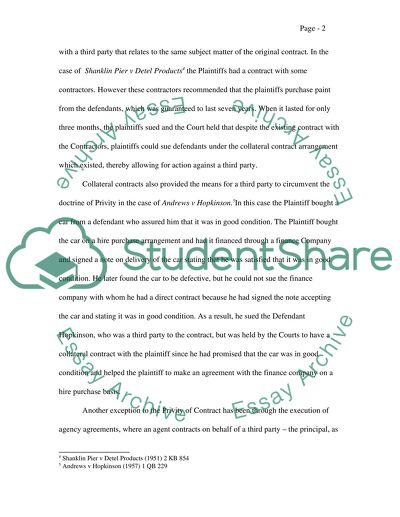Cite this document
(Privity of Contract Essay Example | Topics and Well Written Essays - 1750 words - 4, n.d.)
Privity of Contract Essay Example | Topics and Well Written Essays - 1750 words - 4. Retrieved from https://studentshare.org/law/1541886-contract-law
Privity of Contract Essay Example | Topics and Well Written Essays - 1750 words - 4. Retrieved from https://studentshare.org/law/1541886-contract-law
(Privity of Contract Essay Example | Topics and Well Written Essays - 1750 Words - 4)
Privity of Contract Essay Example | Topics and Well Written Essays - 1750 Words - 4. https://studentshare.org/law/1541886-contract-law.
Privity of Contract Essay Example | Topics and Well Written Essays - 1750 Words - 4. https://studentshare.org/law/1541886-contract-law.
“Privity of Contract Essay Example | Topics and Well Written Essays - 1750 Words - 4”. https://studentshare.org/law/1541886-contract-law.


